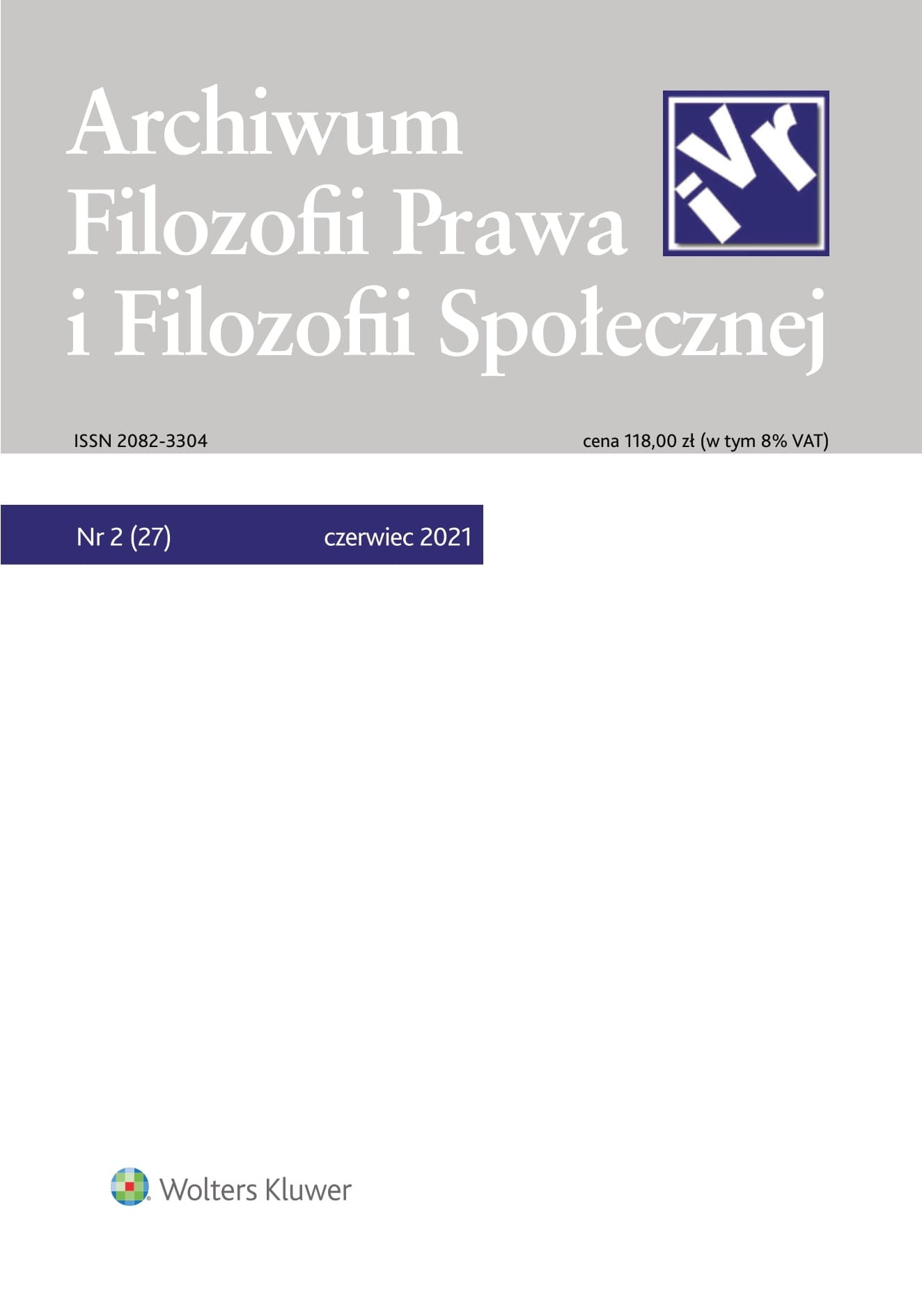Legal Realism and Functional Kinds: Michael Moore’s Metaphysically Reductionist Naturalism
Legal Realism and Functional Kinds: Michael Moore’s Metaphysically Reductionist Naturalism
Author(s): Torben SpaakSubject(s): Philosophy, Law, Constitution, Jurisprudence, Philosophy of Law
Published by: Stowarzyszenie Filozofii Prawa i Filozofii Społecznej – Sekcja Polska IVR
Keywords: functional kinds; naturalism; realism; conventionalism; causal theory of meaning; nihilism; skepticism
Summary/Abstract: Michael Moore defends an account of scientific, mental, moral, and legal properties, according to which there are not only natural kinds, but also moral and functional kinds; and he maintains, more specifically that: 1) distinctively legal phenomena, such as legal rights, precedent, malice, etc. are functional kinds, in the sense that they have a nature that consists in the function they fulfill in law, 2) the function of a functional kind is that effect, or those effects, of the functional kind that causally contribute more than does any of its other effects to the goal of the larger system within which it occurs, and 3) functional kinds can be reduced to indefinitely large disjunctions of natural properties, 4) the relevant version of naturalism is metaphysically reductionist naturalism, and 5) functional kinds play an indispensable role in the explanation of human behaviour.I argue, however, 1) that the method for determining the function of a (purported) functional kind proposed by Moore is too indeterminate to be able to pin down the function. I also argue 2) that it turns out to be very difficult to identify the properties that are part of the indefinitely large disjunction of natural properties which, on Moore’s analysis, is identical to a functional kind, 3) that functional kinds cannot be part of the best explanation of human behaviour, because they lack nomological unity, and that they lack such unity because they are necessarily multiply realizable, and 4) that Moore will therefore have to give up: a) the view that functional kinds are identical to indefinitely large disjunctions of natural properties, b) the view that functional kinds are part of the best explanation of human behaviour, or both (a and b). I also argue 5) that the idea of a functional kind should not play a central role in any theory of law or legal reasoning.
Journal: Archiwum Filozofii Prawa i Filozofii Społecznej
- Issue Year: 27/2021
- Issue No: 2
- Page Range: 83-107
- Page Count: 25
- Language: English

